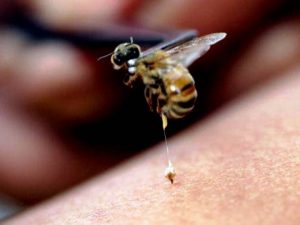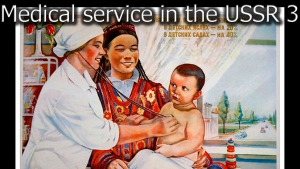
I confess: I am not much into mending fences–either making them or breaking them or fixing them.
My life is of one who caroms–ricochets. Caroming is a billiard game that has tables without pockets. Points are made by striking a ball at a neighbor which will hit the target ball further on. Carom billiards originated in France, as the name suggests. In Japan, the strategy of the game Go is similar where the competitors do not capture, subdue, or conquer their opponent’s pieces. In both cultures indirection and nonviolent confrontation are key.
The difference I have with both the French and the Japanese is that I do not keep score.
Follow me on some pivots:
I began college at Berkeley with a pre-med plan. My mother urged me to become a medical Doctor. I started as a biology major. My first sight of a living swimming paramecia in a drop of pond water led me into a mystical new world. I became addicted to courses on embryology, anatomy, embryology, and natural history.
During these classes I overheard premeds exclaiming about the financial opportunities of joining the profession. I learned that certain fields of medicine were considered second-class–such as community medicine, and medical practice in Native American territories. The racism in the medical profession startled me. There were two medical associations: the ‘American’ for Caucasians, and the ‘National’ for others-for minorities. Medical research and education were primarily on and for the middle-class white male. It was assumed I would join the white male elite American Medical Association.
This lesson pivoted in my mind for decades. Later when I studied medical systems in China, I documented medical trips to China: One was from the American (white) Medical Association, and the other was from the National (Black) Medical Association. Their reports on China were starkly different. The former was on the advancement in the field of modern medical practice for difficult surgeries and diseases. The other was on the medical needs of the peasantry, the workers, and the poor.
 While a teacher I took special care of my students. One African American woman was stung during a trip in China. I could not identify the stinger. Upon later examination, I found that there was insufficient or any discussion or pictures of bee stings on the arms of Black folk. The analysis of bee sting remedies showed the red mark or the stinger in a white arm.
While a teacher I took special care of my students. One African American woman was stung during a trip in China. I could not identify the stinger. Upon later examination, I found that there was insufficient or any discussion or pictures of bee stings on the arms of Black folk. The analysis of bee sting remedies showed the red mark or the stinger in a white arm.My family’s history also provided a reason to pivot from a a medical career.
In 1948, I was ten years old when my father died of a heart attack. My family was very pro-Russia —especially for its role in World War Two against the Germans. But also because Russian medicine was then highly regarded, especially its delivery system of free clinics, and allegedly advanced medical procedures. I believe that he would not have died if he were in Moscow. I had a very negative view of American medicine and its health systems.
Much later, I, of course, was delighted by our reforms in American Health Care and Medicare. But by then, I was already in another profession.
However, it was my stepbrother’s experience in the medical enterprise that shunted me from becoming a Doctor. While I was in high school, he had been a premed student at UCLA. He was very active in social and community reform movements as well as radical organizations for worker’s rights and minorities. So much so that he was blacklisted from American Medical Schools. The Geneva Medical School ignored his socialist identity.
Soon after he became a student he was invited to the American Embassy. The Officer asked to look at his passport. Then immediately put it in a desk drawer with the warning as long as he was a student he did not have permission to leave Switzerland.
After receiving his medical degree he returned to the States where he worked with migrant workers, minority groups, and women (who wanted abortions) and became a favorite of many Hollywood actors and radical writers. He was active politically in supporting Che Guevara, Daniel Ortega, and Cesar Chavez. Over 300 people attended his funeral with such luminaries as Tom Hayden giving testimony to a life of service, radicalism, and medical reform.
From my slow rejection of a medical career, I never looked back. Still, I continued to carom from field to field: from a college professor of East Asian Studies to a human rights radical, a community worker, and many other areas that medicine would have denied me or registered me as too radical to enjoy pride within the profession.
I confess: I am not much into mending fences--either making them or breaking them or fixing them.
Characterizations:
moving




Medicine is very political–the most effective road to health for the greatest number lies in addressing the environmental and socioeconomic determinants of health, and prevention is indeed cheaper than acute care. Like all institutions, medicine reflects the political priorities of a country, and challenging them may be hazardous. I understand why you were dissuaded.
Khati: I am/was aware of the need and benefits of the medical field. What I could not tolerate was its culture. And my personal experiences were negative.Both my brother and stepbrother were doctors. I have already discussed my stepbrother. My brother became a well-known radiation oncologist at Kaiser Permanente. His personal life was not known to his colleagues. He was a very angry man: Daughter 1 died in a questionable auto accident, # 2 committed suicide which was covered up, # 3 reverted to sign language so she would not talk to him. She left for New York and Mexico where she teaches in sign language and theater, and is a yoga maven. Son #1 was hostile to medicine, was fired from his teaching position in elementary school for classroom pornography, privately threatened to kill his father, and left the country for Turkey and Germany. My brother died eventually with no public announcement or personal responses. Near the end of his life he became a Catholic.
In other words, I watched my stepbrother negotiate through medicine with his toxic political life (which I admired but was afraid the toxicity would also target me) and rarely talked with my brother–who abused me. So I had no models for entering the medical profession.
I did, however, keep up an interest. At my University I was sometimes invited to be the outside Professor on the zoology Honor’s projects, I have studied the the political and scientific issues of abortion (the limits to the XX-XY definition) and have lectured on the political threats from the bans, as well as discussing the need for and etiology of a woman’s right to choose. I greatly enjoy my conversations with my doctors and nurses whom I see more of as I get older.
Your passion for helping others, especially the less advantaged, always comes thru Richard.
Hoping our next president sees the importance of sustaining good public education and public health.